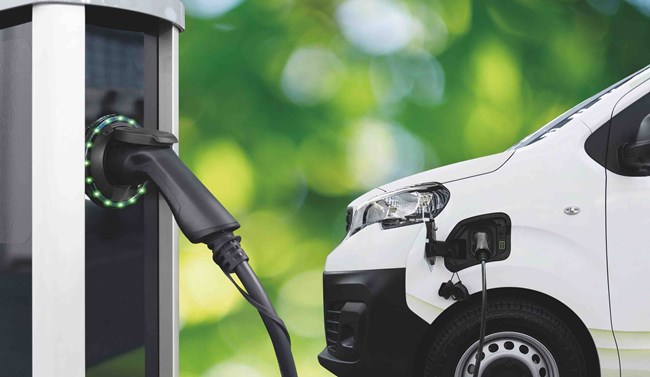- 'Luxury' tax on expensive pick-up trucks suggested
- ADVERTISEMENT FEATURE: Essential advice to avoid the van fleet ICE-berg
- ETRUX launches new Ford E-Transit Trizone
- Renault gives UK debut to Master E-Tech at CV Show
- Isuzu D-Max long-term test – Latest Report
- Isuzu D-Max V-Cross Steel Edition revealed
- IVOTY Report: Stellantis explores the hydrogen proposition
- New Maxus EVs include eDeliver 5 van
- Used LCV values reach six-month high
- ADVERTISEMENT FEATURE: IVECO Daily Mission Awards 2024 Q2 Round-up: Grounds Maintenance & Forestry
Changes needed to electric van range labelling, AFP says
Date: Tuesday, June 27, 2023 | Author: Sean Keywood

Range data supplied for new electric vans should be changed to better reflect real-world performance, according to the Association of Fleet Professionals (AFP).
The organisation said that the performance of the vans on the road often fell well short of official WLTP figures.
AFP chair Paul Hollick said some members were finding that the degrees of variation seen in operation across different conditions meant that the official range was an inadequate guide to actual performance.
He said: “We now have a number of fleets who have operated electric vans for a reasonable period of time and crucially, through the recent winter. The differences in range that are being reported on some models are, we believe, a cause for concern.
“The weather factor is especially proving to be much greater than originally thought with some of our members seeing a drop in range approaching 50% during the coldest winter days on occasions when there was no opportunity to precondition the battery. These are not the relatively minor variations in range that might be reasonably expected.
“However, other issues are emerging, too. Payload was already known to have a negative impact – although its extent has proven to be a surprise to some operators – but the effect of commonly-used fittings such as roof racks and ladder loaders are proving noticeable.”
Hollick said that the issues around range sometimes made electric vans difficult to use in real world conditions, with fleets being unsure on some days in winter whether they could complete the routes for which they were normally used.
He said: “We definitely have members who feel as though they have been misled over the potential range of some electric vans they have bought and have generally lost confidence in them.
“There is a feeling that the WLTP figures being produced are often almost useless as an indicator of actual range and something much closer to real world figures is required.”
Hollick explained that the issue was more complex for electric vans than for electric cars.
He said: “The weights that company cars carry vary but by not by too much in the vast majority of cases, so shifts in the distance that can be covered are much less dramatic.
“This is not the situation for vans and ideally, we’d be looking for different official tests for warm and cold weather conditions, with different payloads, towing and more.
“How the situation could be improved in the short term is unclear. WLTP is an agreement created under a United Nations initiative, so not easily changed.
“We are probably looking for the government or a widely recognised official body to hopefully step into the breach. It’s a question of providing data that allows fleet operators to make an informed choice.”
Hollick said the AFP remained strong advocates of electric vans, but added that members were experiencing a number of difficult issues as they underwent the process of adoption.
He said: “It’s clear that the electrification of the van parc is turning out to be much more demanding than has so far been the case for cars, with range, charging and payload very much proving stumbling blocks for many.
“However, our members are working through these problems by sharing information, advice and best practice.”
View The WhatVan Digital Edition


